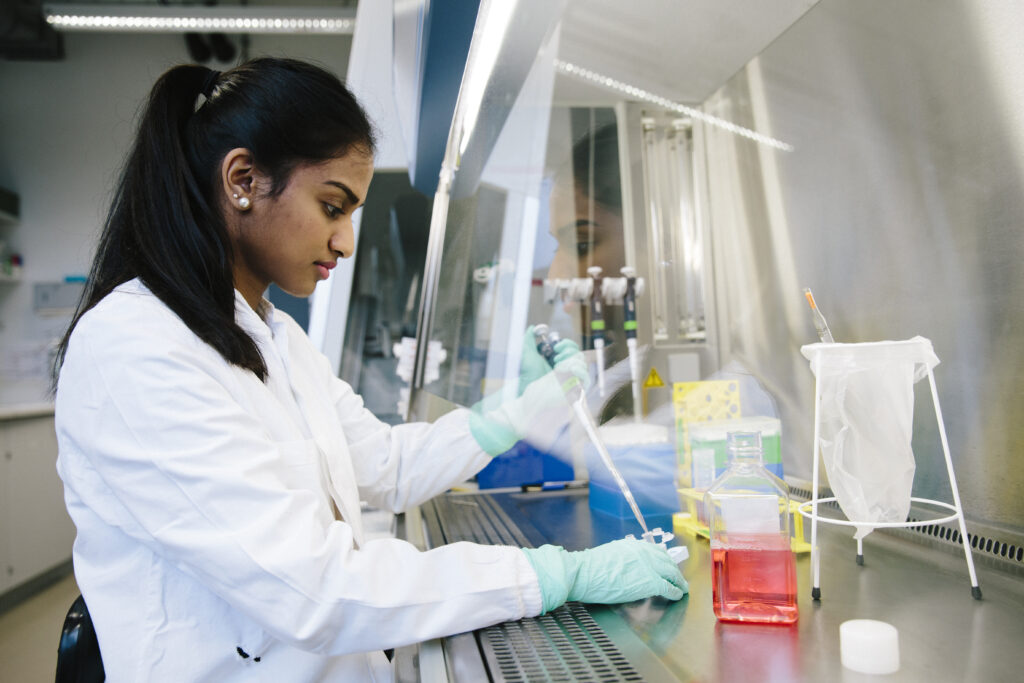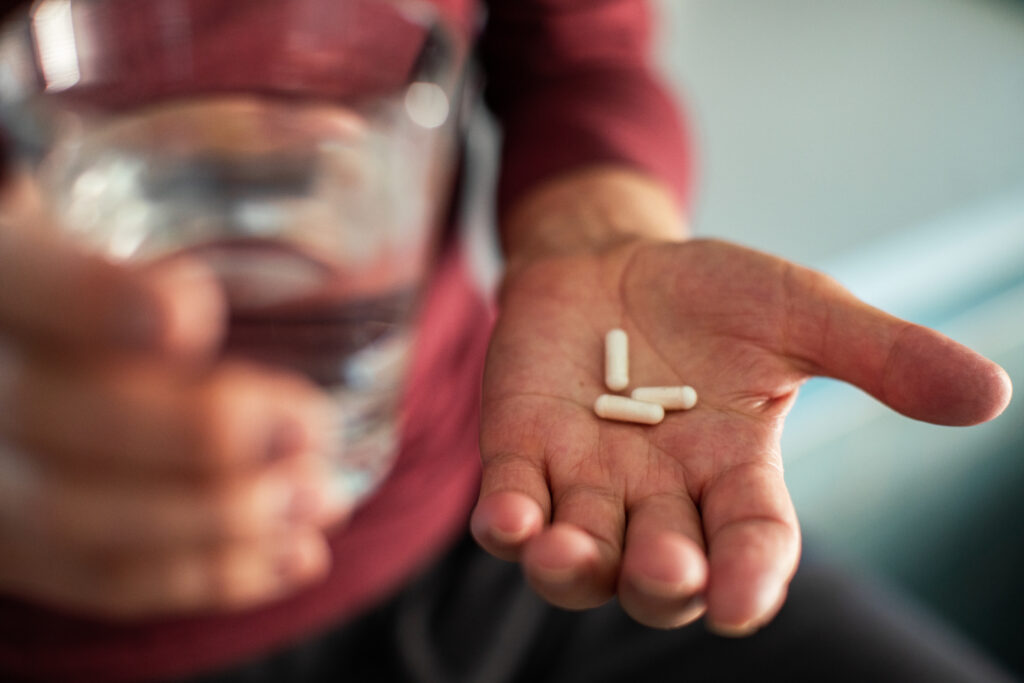Growing Bacillus can be fun! Sporulation
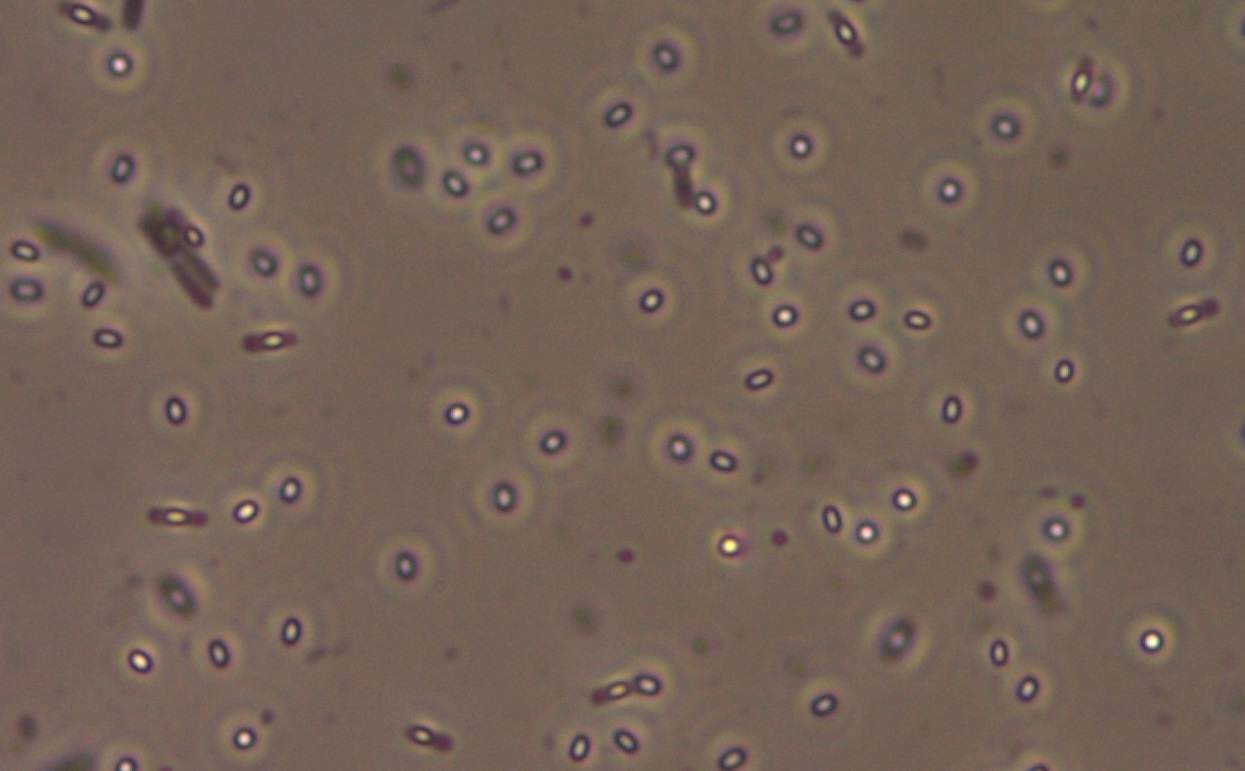
In our introductory blog on Bacillus, we shared some of its unique features that has made it a microorganism of choice for many commercial applications in Bio-Pharma, Probiotics, Plant Nutrition, Biocontrol and other emerging markets. In this blog, we will explore deeper into Bacillus’ spore forming tendencies, key drivers for sporulation growth, commercial benefits and lessons learnt in growing them for commercial applications.
Anatomy of spore formation
Bacillus is one of the few among the Bacteria Genera that has the ability to form spores. Bacterial spores are highly resistant, dormant structures (i.e. no metabolic activity) formed in response to adverse environmental conditions. During spore formation, microorganism constructs a protective coating (Figure 1) around itself and enters a dormant state when it senses stresses such as nutrient deprivation. The protective coating can resist heat, chemical damage, desiccation, UV irradiation, and other stressful factors. The organism can germinate and continue with its life cycle, when proper nutrients are restored. This cycle, ensuring the long-term survival of the microorganism, is widely utilized for various biotechnological applications.
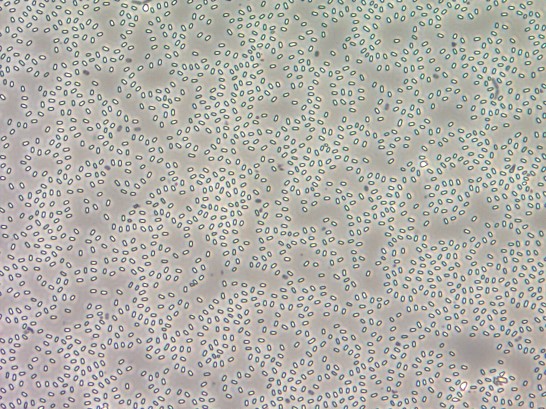
Metabolic needs
To survive and thrive in various environments, Bacillus species require robust sensing, resource management, and metabolite regulation capabilities. They are able to use environmental sensing mechanisms and bet-hedging strategies to decipher the quality and stress levels of its surroundings and execute optimal growth and survival strategies.
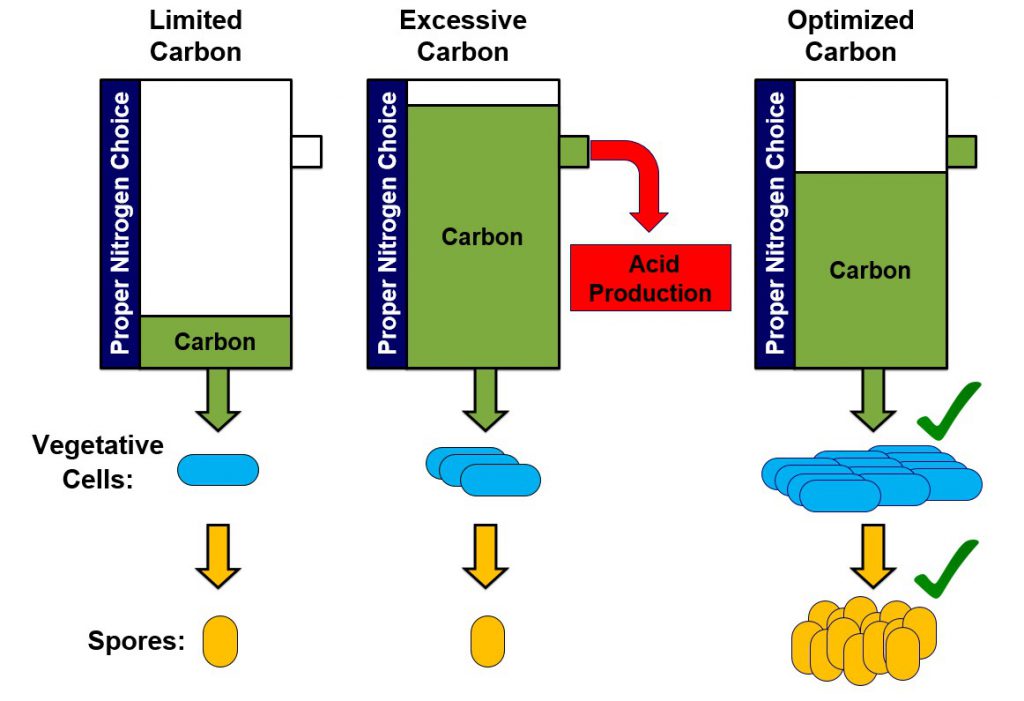
One well-known example of such behavior is carbon overflow metabolism. When the cells perceive the presence of high amounts of carbon, the metabolic focus shifts away from growth to the generation of specific niche occupying metabolites, such as organic acids as depicted in Figure 2, which ensure that the cells are able to compete against other species for the available nutrients. Such mechanisms are advantageous in nature but can be highly problematic in fermentation applications as the yield of the intended commercial product can decrease significantly.
Applications of spores
One of the most studied Bacillus species for spore formation is B. subtilis. B. subtilis isolate strains are commonly found in vegetative environments where symbiotic organisms consume them, gaining nutritional and immunity benefits. This makes B. subtilis strains suitable for human probiotic, animal feed, and biocontrol applications.
B.subtilis play an active role within the gastrointestinal (GI) tract of humans helping maintain healthy bacterial communities. The spores can survive the digestive process and germinate in the GI tract where they can continue to make useful metabolites. Furthermore, their stability during food processing, due to their heat resistance, makes them desirable as probiotic inclusions.
Over the last decade, there has been a rise in the use of probiotics in animal feed as an alternative to antibiotics. The use of antibiotics as growth promoters for animals is banned in several countries; however, inclusion of microorganisms such as B. subtilis in animal feed is a viable alternative. B. subtilis spores have been utilized in dietary supplements for livestock, poultry, and aquaculture because of its beneficial role in animal immune function, digestion, and growth.
Biocontrol agents compete with other microbes that adversely affect the plant, activate the defense system of the host, and make nutrients more readily available to the plant. B. subtilis can produce a variety of metabolites, which can inhibit the growth of pathogenic bacteria. Some of those metabolites can also activate the defense system of the plant, which enhances its immunity. Additionally, B. subtilis is capable of reducing substances in fertilizers into more easily absorbed materials, which improves the fertilizer’s utilization rate.
Growing spores commercially
Growing Bacillus in a controlled environment could be exciting and challenging at the same time. While Bacillus can do many things for you, it is important to make sure it does what you want in the right way!
The process of forming spores for any given application is complex. Sporulation efficiency, fermentation time, spore stability, and regulatory requirements are all important factors when producing spores.
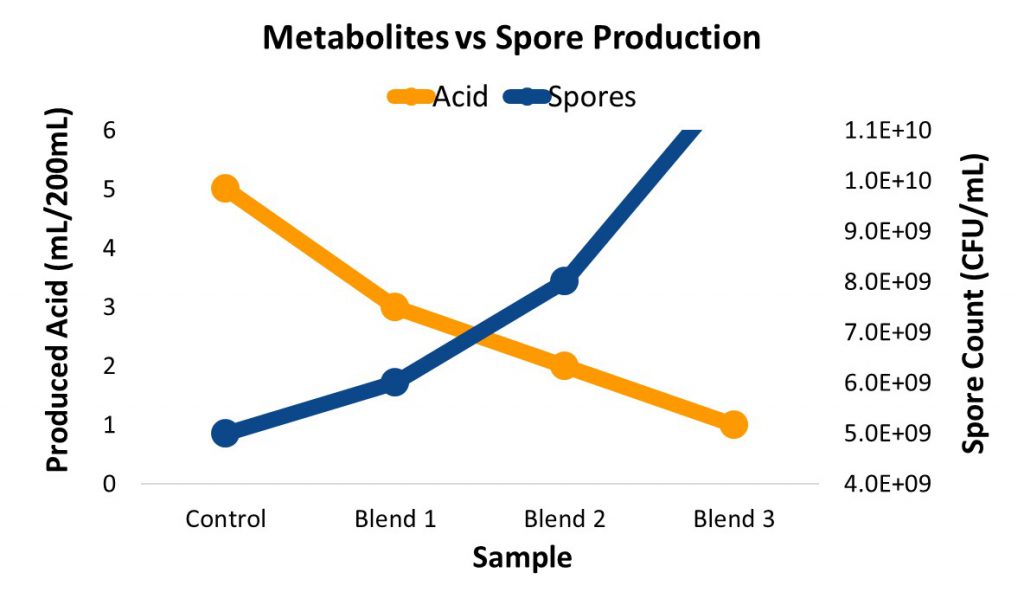
Sporulation efficiency is the portion of the cell population that convert to spore form. This occurs when cells have begun to accumulate and nutrients become exhausted. B. subtilis require nutrients as resources to perform tasks such as creating biomass, producing metabolites, or sporulation. To attain high sporulation efficiency, it is critical for B. subtilis to utilize its resources for creating biomass rather than metabolites. Figure 3 shows that when the proper media is provided, the fermentation generates spore biomass rather than acid metabolites.
Reducing fermentation time while increasing sporulation efficiency and yield is also critical in commercial applications. The reduction in fermentation time can mean a reduction in manufacturing costs or the ability to produce more product. Many factors play into reducing fermentation time. Aside from proper media composition, knowledge of proper growth conditions such as optimal temperature and pH is also important. Moreover, the rapidly sporulating culture must be stable and remain in its spore form for its desired application, but also have the ability to germinate and produce targeted metabolites when necessary for the intended application.
Regulatory requirements vary depending on the end application. These requirements dictate what types of nutrients can be used in the fermentation of Bacillus spores. For example, human probiotics strains often require animal free, non-GMO, dairy free, and gluten free components.
Summary
B. subtilis can be a highly beneficial spore-forming microorganism suitable for many commercial applications when grown in efficient and optimal conditions.
Understanding the optimal conditions for fermentation, performing media optimization studies, and scaling up to production volumes can be resource-intensive and time-consuming tasks. However, working with a partner with detailed knowledge of the nutrients and fermentation conditions suitable for each application can accelerate efforts towards achieving your business goals in a relatively short amount of time.
References:
Bressuire-Isoard, C., Broussolle, V., & Carlin, F. (2018). Sporulation environment influences spore properties in Bacillus: Evidence and insights on underlying molecular and physiological mechanisms. FEMS Microbiology Reviews, 42(5), 614–626.
Earl, A. M., Losick, R., & Kolter, R. (2008). Ecology and genomics of Bacillus subtilis. Trends in microbiology, 16(6), 269–275.
Elshaghabee, F. M., Rokana, N., Gulhane, R. D., Sharma, C., & Panwar, H. (2017). Bacillus as potential probiotics: status, concerns, and future perspectives. Frontiers in microbiology, 8, 1490.
Hong, H. A., Duc, L. H., & Cutting, S. M. (2005). The use of bacterial spore formers as probiotics. FEMS microbiology reviews, 29(4), 813-835.
Kim, H., Hahn, M., Grabowski, P., McPherson, D. C., Otte, M. M., Wang, R., … & Driks, A. (2006). The Bacillus subtilis spore coat protein interaction network. Molecular microbiology, 59(2), 487-502.
Nagórska, K., Bikowski, M., & Obuchowski, M. (2007). Multicellular behaviour and production of a wide variety of toxic substances support usage of Bacillus subtilis as a powerful biocontrol agent. Acta Biochimica Polonica-English Edition-, 54(3), 495.
Nicholson, W. L. (2002). Roles of Bacillus endospores in the environment. Cellular and Molecular Life Sciences CMLS, 59(3), 410-416.
Ren, H., Su, Y. T., & Guo, X. H. (2018). Rapid optimization of spore production from Bacillus amyloliquefaciens in submerged cultures based on dipicolinic acid fluorimetry assay. AMB Express, 8(1), 21.
